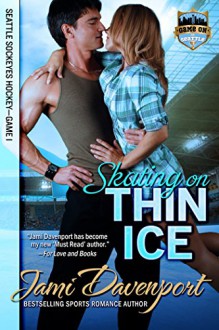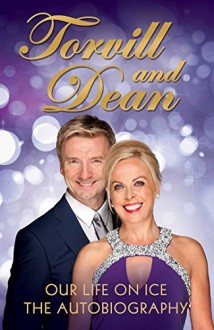
OK, once I got past the highly debatable subtitle and rather ridiculously sexed-up cover picture, this little book from 2005 was actually quite an enjoyable read. A full biography it is not, but Katarina is not the first female skater - see, for instance, Barbara Ann Scott - to combine scattered biographical facts and philosophical musings into an advice-to-a-young-skater format. At least Katarina's book doesn't include an entire chapter on the details of school figures!
I like Katarina, based on her pretty consistent public persona here and on tv - she's generally very down-to-earth and seems to have a strong grasp on realities both interpersonal and financial. What's more, she appears to have the capacity to form strong female friendships - notably with Sandra Bezic and with her business partner, Elizabeth. She also somehow seems to have maintained a strong relationship, though perhaps part of that is unacknowledged dependency, with a coach, Jutta Muller, whose methods in this gradually-awakening day and age would likely be described as borderline abusive. The strictures on Katarina's weight - and the skater's defence of those strictures - I found troubling. Anyway, it's clear that even 10 years after her last amateur skate, Muller was still a valued part of Witt's career. She takes her fictional young skater friend, "Jasmine" to see her training with Mueller for her latest professional project.
One of the self-revelations I most enjoyed was Katarina's complete awareness that she's addicted to showboating. She doesn't seem particularly worried that she thrives on being the centre of attention, and doesn't perform her best unless she's aware of multiple eyes upon her. I'm not sure she quite makes the full connection between that and the fact that she has never settled down into a marriage, but she comes close in the few fairly guarded sentences that she devotes to her longish relationship with Richard Dean Anderson. In fact, rather too much of this narrative is slightly defensive about being an independent single woman, although I can completely understand that she has had to deal with this same narrative for years from the media; all that emphasis on her femininity and her beauty (often at the expense of acknowledging her real athletic chops). That aspect of her life interested me far less than her stories of growing up in East Germany, and also the stories she introduces about some of her East German friends, at least one of whom made the dangerous crossing from East to West Berlin while the wall was still up.
About other skaters of her era, Katarina generally speaking follows the "if you can't say anything nice" rule; she has respectful words for Debi Thomas, and also for Nancy Kerrigan, and she openly regrets that she was so aggressively competitive with Rosalynn Sumners in the pre-1984 years, given how well they got along in the pro years that followed. And then there's this:
"And what was Tonya Harding like?"
"Tonya," I chuckled ruefully. "She was an impressive athlete, I must say. Her jumps were so high. She was very talented, except not in the head. Really, I don't care two cents about her."
She's careful, but it's not North American media-speak. I like that.
If you are curious about how she would describe her Playboy photo-shoot, or the '87 Worlds, '88 Olympics, the '94 Olympics, or Carmen on Ice, you'll find a bit about each of those in here, though none of them is terribly deeply examined. E.M. Swift (the same man who "co-wrote" Gordeeva's My Sergei) has done a good job eliminating any Germanic-sounding glitches from the smooth first-person narrative. There is a photo section, in black and white, not in itself a reason to buy the book, but with some fun novelties (including pictures of Katarina and Anett Poetzch wearing the same competition dress).
I hope we do someday get a more substantial memoir or biography, but in the meantime, this little book has earned its spot on my shelves.


 Log in with Facebook
Log in with Facebook 









